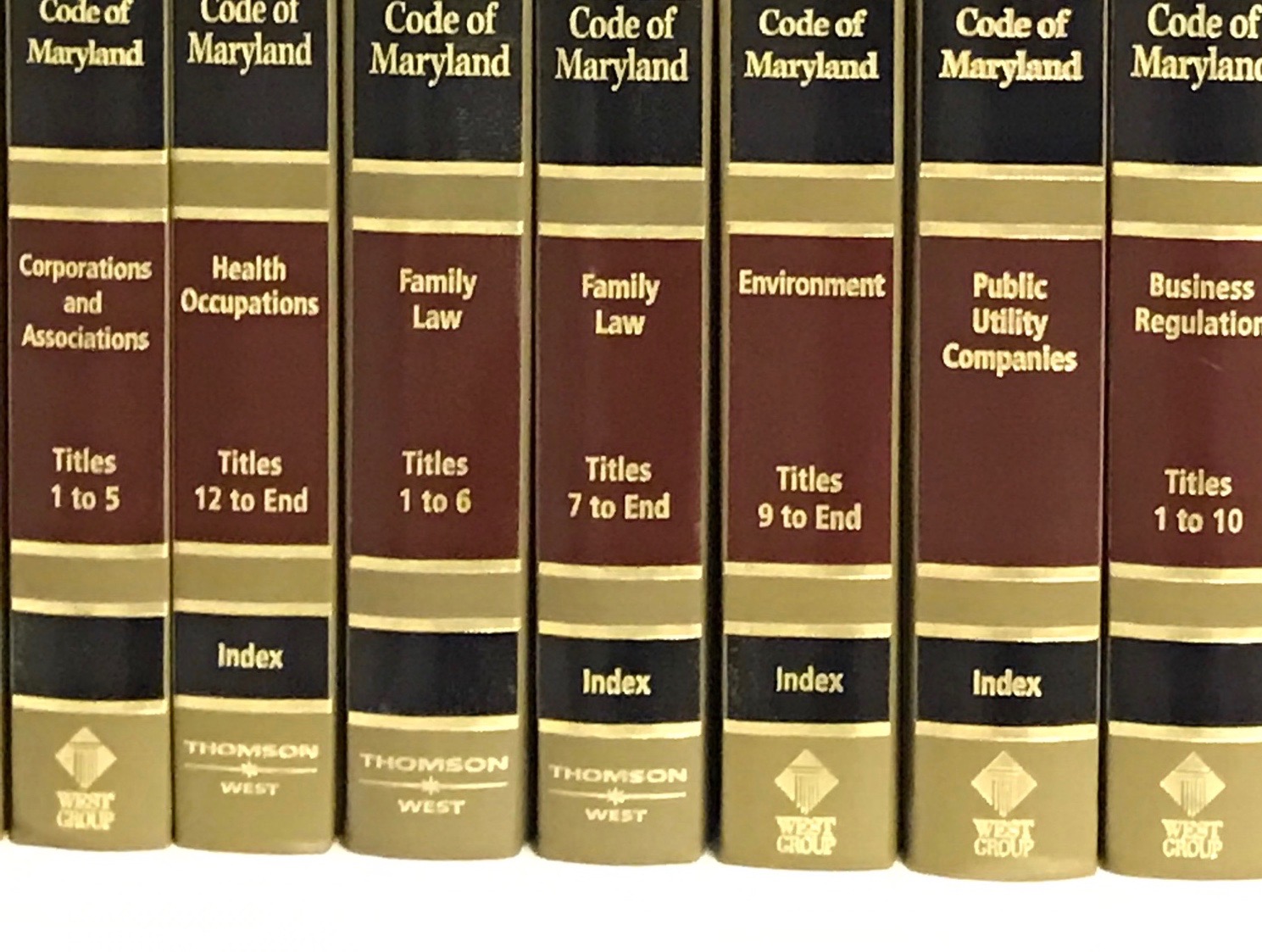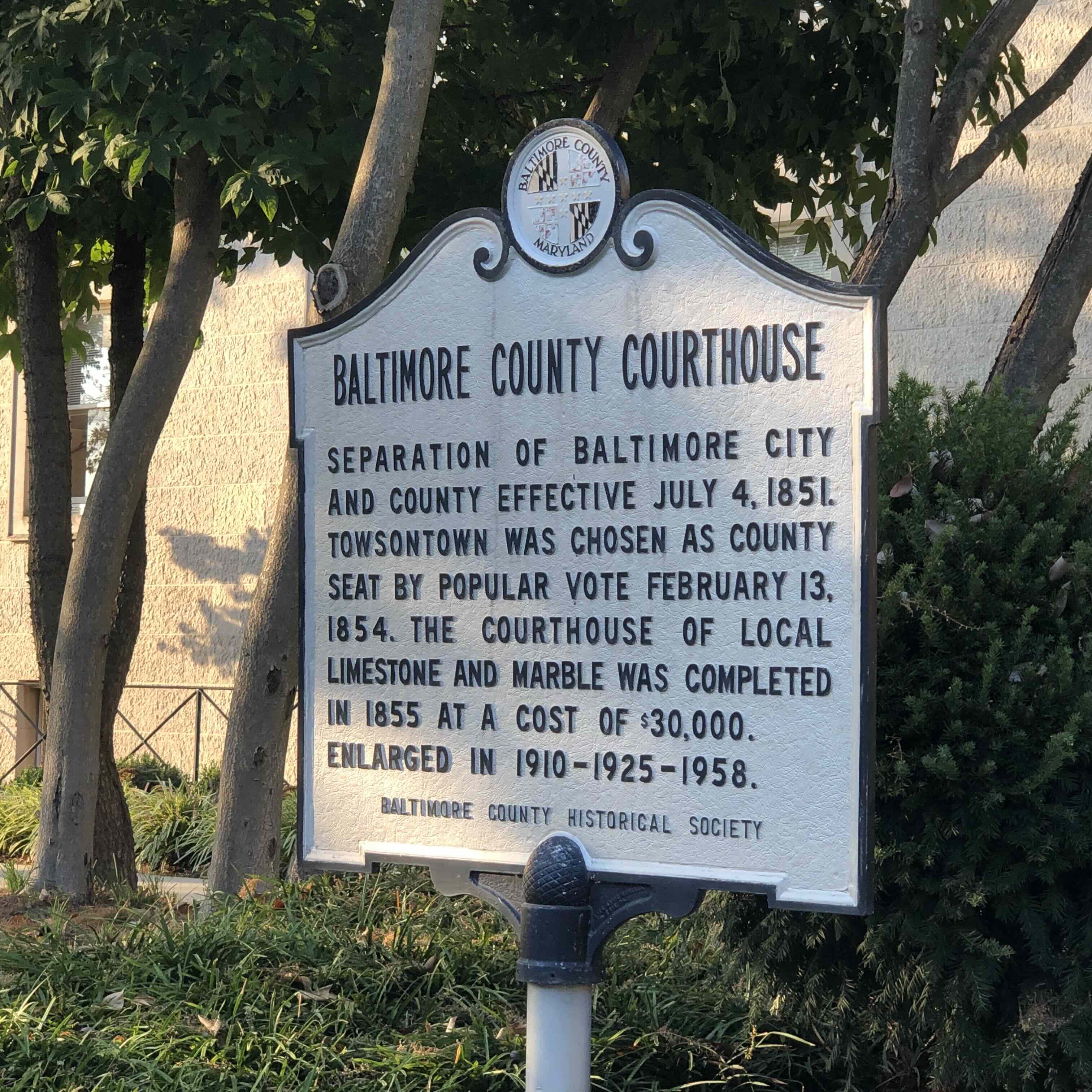Baltimore County & Towson Family Lawyer Amar S. Weisman




DISTINGUISHED BALTIMORE COUNTY LAW FIRM EXCLUSIVELY DEDICATED TO FAMILY LAW
For 17 years, Towson Divorce & Custody Lawyer Amar S. Weisman has managed more than 1,750 divorce, child custody, child support and domestic violence matters in the State of Maryland. By focusing on domestic litigation and developing local expertise, Mr. Weisman helps clients set and achieve their litigation goals. His recognitions include, but are not limited to:
- EXPERTISE.COM: 10 Best Divorce Lawyers in Baltimore, 2021-2025
- ATTORNEY AND PRACTICE MAGAZINE: Top 10, Family Law, MD, 2019-25.
- ATTORNEY AND PRACTICE MAGAZINE: TOP 3, Family Law, 2025
- AMERICAN INSTITUTE OF FAMILY LAW ATTORNEYS, Top 10, Client Service: 2016-2025, American Institute of Family Law Attorneys
- GOODFIRMS: #16 Law Firm in Maryland
- AVVO: 10/10 "Supurb" Rating
- GOOGLE: 4.7/5.0 Rating
- GRADUATE: Georgetown University; University of Baltimore School of Law.
ROAD MAP TO PREVAILING IN YOUR BALTIMORE COUNTY FAMILY LAW MATTER
- Comprehensive Intake & Realistic Goals. To represent clients, Mr. Weisman canvasses the history of the case through customized intake forms and client interviews, then confers with the client to identify realistic goals based on the facts.
- Excellent Pleadings and Motions. Amar Weisman owns each case and prepares all court papers, including complaints, motions, petitions, and memoranda, ensuring they are accurate and timely and tell your story.
- Canvassing Evidence Through Discovery. As a Maryland divorce lawyer, Mr. Weisman obtains admissible evidence from opposing parties by propounding discovery requests such as interrogatories, document requests, and depositions and issues subpoenas to financial institutions, schools, health care providers, and law enforcement. For more information, see Evidence & Divorce, Evidence & Custody, Evidence & Child Support, and the Tools. Discovery.
- Preparing for Court and Presenting Evidence. Amar S. Weisman ensures the case is thoroughly prepared for court, identifying and preparing witnesses and serving trial subpoenas. He is well-versed in the types of hearings required under the Maryland Rules of Civil Procedure. Mr. Weisman also includes the acquired evidence as Exhibits for introduction into evidence at the Merits Trial.
- Tactful Negotiation. Amar S. Weisman helps his clients achieve positive outcomes by using effective negotiation strategies. He is a Towson Divorce Lawyer who can assist with settlements, mediation, and other methods to resolve disputes.
- No Bait and Switch. When clients hire Amar Weisman, they actually get Amar. Weisman. You will never be managed or handed off to associates, paralegals, summer interns, remote receptionists, or ghost writers. Don't you want the experienced attorney over the new associate?



Baltimore County Divorce Lawyer
Protecting Marital Property Interests.
Amar Weisman is a divorce attorney who protects his clients' financial future by applying his knowledge regarding property valuation, the consequences of selling and transferring property, the impact of the dissipation of marital property, and what constitutes the difference between marital property and separate property. He can help clients litigate and negotiate by drawing on his experience litigating in the courthouse and his knowledge of recent court decisions affecting what the court can do with the marital home, pensions, and other assets that the clients have acquired and need to protect.
Demanding and Using Evidence of Assets and Income
Evidence wins Baltimore County divorces and protects your financial future. Attorney Amar S. Weisman identifies all assets including real property, pensions, 401(k) plans, vehicles, bank accounts (obvious and hidden) and documents the value of everything using the tools of discovery--including interrogatories, document requests and subpoenas to third parties; including banks, employers, retirement plans, and more. Whether pursuing an equal division of assets or more under Maryland's equitable distribution statute, Amar Weisman builds an evidentiary foundation one brick at a time. Every case is different; sometimes it is about obtaining the marital home you and your children want and need; sometimes it means exposing financial lies by deposing your spouse; often it means obtaining a fair and accurate appraisal to properly value the marital home. Don't you want an attorney determined to locate every asset so you can get your fair share?
Baltimore County Divorce Hearings
Amar S. Weisman understands the purpose and focus of every type of hearing inthe Circuit Court for Baltimore County. After identifying each client's goals, he works works towards them methodically at each stage. This begins with the Scheduling Conference to ensure there is enough time for discovery, depositions, custody evaluations, alcohol assessments, and the procurement of the documents necessary to win your case at trial or negotiate effectively. He also understands Pendente Lite Hearings, where Courts establish interim custody and child support arrangements to ensure you can obtain temporary alimony, temporary custody, and ensure continuity in your life. Mr. Weisman also guides cases, when appropraite, towards settlement, notably at the Settlement Conference, by framing the issues in meticulous Joint Statements Regarding Marital and Non-Marital Property and Joint Statements Regarding Parenting Time and Decision Making Authority. Finally, Mr. Weisman prepares for the Merits Trial; beyond crafting the direct examination, cross-examination, and exhibits, Mr. Weisman makes sure the client is ready. Don't you want a lawyer who cares whether you understand the litigation process and collaborates to make it suit your goals?
Grounds for Absolute Divorce Under Maryland Maryland
Effective October 1, 2023, the grounds for absolute divorce have changed. Pursuant to Md. Code Ann., Fam. Law § 7-103, the grounds for divorce are:
- Irreconcilable differences: based on reasons stated in the Complaint for Absolute Divorce. What constitutes irreconcilable differences has not been tested in the case law because the ground for divorce only exists effective October 1, 2023. Click here to learn about establishing irreconcilable differences in the context of a Maryland Divorce.
- Six-Month Separation: If the parties have resided separately and apart for six months without interruption before filing the Complaint for Absolute Divorce. This discusses how the grounds for a six-month separation can be established.
- Mutual Consent: The parties must submit a written separation agreement addressing all required issues, including alimony, marital property, and custody of any minor children of the marriage. The requirements to pursue a divorce in Maryland are based on mutual consent.
How is Marital Property Divided in Baltimore County, MD?
Marital Property includes all property acquired by the parties during the marriage, however, titled, unless it is traceable to a non-marital source, gift/inheritance or excluded by a valid Prenuptial Agreement. If a judge decides marital property, all property is identified, the fair market value is determined, and how the pot gets divided depends upon statutory factors, including length of the marriage, the circumstances of estrangement, the contributions of each spouse to the acquisition of the marital property, the work history of the parties, the monetary and non-monetary contributions of each party to the marriage, age, health, and a host of other criteria. The property to be divided includes the marital Home, Retirement Assets, Investment Accounts, and Marital Businesses.
Can I Request (Or Be Told to Pay) Spousal Support/Alimony?
If there is a dependent spouse and a primary wage earner, then spousal support and alimony may be on the table. Multiple forms of alimony are available under the Maryland Family Law Article and articulated by case law. Alimony Pendente Lite (Temporary Alimony) is established to maintain the Status Quo while a divorce is pending. Rehabilitative Alimony, which is the regular kind, is awarded based on multiple factors, including the length of the marriage, circumstances of estrangement, work history, earning potential of the parties, monetary and non-monetary contributions to the marriage, how property is being divided, and other factors. In rare cases where there will be an unconscionable disparity in the respective living standards even after the supporting spouse has made the maximum efforts to become self-supporting, Indefinite Alimony (Alimony that never ends) may be on the table. However, Alimony is subject to post-judgment modification.
Do Most Divorce Cases Settle?
The vast majority of divorce proceedings are managed by Amar S. Weisman, and they settle to the satisfaction of his clients before the merits trial. When a case settles as part of the divorce process, the document memorializing the full and final settlement terms is recited in a Marital Settlement Agreement. Even though most divorces settle, this occurs after the facts and finances come to light, and it becomes possible to predict what a court might do.
TOP BALTIMORE COUNTY CHILD CUSTODY AND CHILD SUPPORT LAWYER
Maryland's New Child Custody Law: HB 1191 Transforms Best Interests Analysis
Maryland has enacted its most significant child custody law reform in decades with House Bill 1191, which codifies 16 specific factors courts must consider when determining the best interests of children in custody cases. The law takes effect October 1, 2025, fundamentally changing how Baltimore County courts evaluate custody matters.
The landmark legislation explained
House Bill 1191, signed by Governor Moore on May 13, 2025, moves Maryland from a primarily case law-based custody system to a comprehensive statutory framework. The bill passed with overwhelming bipartisan support - 139-0 in the House and 46-0 in the Senate - reflecting broad consensus on the need for clearer custody guidelines.
Prior to this change, Maryland courts relied heavily on the 1978 Montgomery County v. Sanders decision nd a limited set of court rules. Judges had significant discretion in determining which factors to consider, leading to inconsistent outcomes across jurisdictions. The new law requires courts to systematically evaluate all relevant statutory factors and, crucially, document their reasoning either on the record or in written opinions.
This transparency requirement represents a fundamental shift in Maryland custody proceedings. Parents and their attorneys will now receive detailed explanations of how courts weighed different factors in reaching custody decisions, providing clearer guidance for families and better grounds for appeal when necessary.
The New 16 Best Interests Factors
The new statute establishes a comprehensive framework for evaluating child custody cases. Courts must now consider factors including:
- The Stability and foreseeable health and welfare of the child
- Maintaining Frequent Contact with Both Parents
- Provided the parents can act in the Child's Best Interests
- Frequent Contact
- Regular Contact (without drama)
- Whether and how parents who do not live together will share the rights and responsibilities of raising the child
- The Child's Relationships--
- Relationships with each parent
- Relationships with relatives
- Relationships with anyone else who is important in child's life
- Relationship with anyone who may become important in child's life
- Protection from exposure to conflict and violence
- The child's developmental needs
- Physical safety
- Emotional security
- Positive self-image
- interpersonal skills
- intellectual growth
- Cognitive growth
- The practical day-to-day needs of the child
- Education
- Socialization
- Culture
- Religion
- Food
- Shelter
- Clothing
- Mental Health
- Physical health
- Placing Child's Needs Above Parents' Needs
- Protect the Child from Parental Conflict
- Maintain Child's Relationships with Both Parents
- Maintain Child's Relationships with Relatives
- Maintain Child's Relationships with Anyone Else who Has (Or is Likely to Have) a Significant Relationship with the Child.
- The age of the child
- Effect of any military deployment on the parent-child relationship
- Any prior court orders or agreements
- Each parent's role and tasks related to the child and how, if at all, those roles and tasks have changed
- Impact on the Location of Each Parent's Home on Ability to Coordinate parenting time, school & Activities.
- The parent's relationship with one another
- How they communicate with one another
- Whether they can co-parent without disrupting the the child's school and social life
- How the parents will resolve any dispute in the future without need for court intervention.
- The child's preference, if age-appropriate
- Any other factor that the Court considers appropriate in determining how to best service the physical, developmental and emotional needs of the child.
Themes of the New Custody Law
- Child-Centered Analysis that disfavors litigating based on parental desires and needs and focuses every aspect of the analysis around the child.
- Rewarding parents who are willing to cooperate.
- Emphasis on the relationships of the child to everyone in his or her orbit.
- Creating arrangements that are logistically practical.
- Fostering relationships between the child and everyone in his or her orbit
- Paramount consideration of the child's mental health
- Repetition of the importance of emotional stability and development.
- Creating final arrangements that promote consistent decision-making
- Creating a framework unlikely to result in the parents returning to Court.
Why the New Child Custody Law Changes Everything
The shift from case law to statutory factors represents Maryland's most substantial custody law reform in nearly 50 years. Previously, Maryland Rule 9-204.1 provided 14 factors for consideration in parenting plans, but these were not mandatory statutory requirements. Judges had broad discretion to emphasize certain factors while minimizing others, leading to unpredictable outcomes.
Under HB 1191, courts must now consider all applicable factors from the statutory list and explain their analysis. This structured approach should lead to more consistent custody decisions across different judges and jurisdictions. The law also modernizes modification standards, explicitly recognizing parental relocation as a material change in circumstances that can justify custody order modifications.
The requirement for detailed judicial findings creates a more robust appellate record. When courts must articulate how they weighed each factor, appellate courts can better review whether trial judges properly applied the law. This enhanced accountability should improve the overall quality and fairness of custody determinations throughout Maryland.
Settlement vs. Litigation in Custody Matters.
Amar S. Weisman, a Maryland Custody lawyer with 17 years of experience, who provides legal representation to protect the parental rights for mothers and fathers who wish to protect their children's future. Amar S. Weisman represents child custody and visitation clients at all Custody Hearings, including the Scheduling Conference, Pendente Lite Hearing, Settlement Conference, Merits Trial, and, where appropriate, Custody Modification and Contempt/Enforcement Proceedings. Often, these culminate in Marital Settlement Agreements and Post-Nuptial Agreements. Like all family matters, it is essential to canvass the evidence necessary to child custody matters through the discovery process, which may include subpoenas of schools, pediatricians, law enforcement, and whoever has information materially relevant to the minor child's best interests.
Evidence in Custody Matters
For families navigating custody disputes in Baltimore County, HB 1191 significantly changes how cases should be prepared and presented. Attorneys must now develop evidence addressing each of the 16 statutory factors, creating a more comprehensive but also more predictable litigation framework. Parents should begin documenting relevant information early in the custody process.Key areas for evidence gathering include:
- Documentation of daily care giving activities
- Establishing the child's relationships with extended family members
- Parental Communications
- Educational Records
- Medical Record
- Testimony Regarding Parental Involvement
- Establishing Attendance for School Activities
- Records of Attending Medical Appointments
- Encouragement of Extracurricular Activities
- Documentation of Parental Conflict and Domestic Violence
The emphasis on the child's developmental needs means that educational records, medical evaluations, and testimony from teachers or counselors may carry increased weight. Parents should also be prepared to address practical considerations like work schedules, housing stability, and proximity to the child's school and activities. By gathering comprehensive evidence aligned with the statutory factors, parents and their attorneys can build stronger cases that directly address the court's required analysis.
Maryland's HB 1191 represents a watershed moment in family law, providing clarity and consistency that has been lacking for decades. e For Baltimore County families facing custody disputes after October 1, 2025, the new law offers both challenges and opportunities. While the comprehensive factor analysis may require more extensive case preparation, the enhanced transparency and predictability should ultimately benefit children and families by ensuring more thoughtful, consistent custody determinations.
Attorneys practicing family law must adapt their strategies to address all 16 factors systematically, while parents should understand that courts will now evaluate custody through this comprehensive lens. The law's emphasis on documentation and judicial accountability creates a framework where the best interests of children truly guide custody decisions, supported by clear statutory guidance rather than variable judicial discretion.
What are the Different Types of Custody Arrangements?
Amar S. Weisman has handled a wide range of child custody disputes. There are two types of custody: Legal Custody refers to the right to make long-ranging decisions, and Physical Custody refers to the day-to-day care of the Minor Children. Legal Custody can be Sole Legal Custody or Joint Legal Custody or Shared Legal Custody with a Tie-Breaker. Physical Custody is either Primary Physical Custody or Shared Physical Custody, depending on the number of overnights.
One separate species of limited physical custody can be called Supervised Visitation. As a Towson custody lawyer, Amar S. Weisman formulates and helps clients achieve long-term goals regarding custody and visitation.
Contempt, Enforcement and Child Custody
As a Baltimore County custody lawyer, Amar Weisman knows that following custody orders, whether temporary or final, is not optional. Remedies for violating court-ordered terms include Petitions for Contempt of Court and Motions for an Emergency Hearing according to the Baltimore County DCM Plan. However, emergency petitions are not usually granted unless there is a demonstrable physical danger to the Minor Child beyond the denial of access.
Child Support in Maryland
Child Support and Custody usually go together. When the Court makes a custody determination, it is mandatory, not optional, for the parties to run the child support guidelines. Parents who believe they can agree not to have child support are simply and forever wrong. Therefore, child support must be calculated pursuant to the Maryland Child Support Guidelines, which factor in the income of the parties, work-related childcare, the cost of insuring the minor child on health insurance, out-of-pocket medical expenses, and sometimes the cost of extracurricular activities and private school. Although child support may appear to be nothing but a formula, child support decisions are still governed by the best interest of the minor child.
STRAIGHTFORWARD BILLING
What is Amar Weisman’s Hourly Rate?
Amar S. Weisman bills at a rate of $350.00 per hour
What is the Average Retainer?
Depending on complexity, retainers range between $3,500.00 and $10,000.00.
Do you take Pro Bono Mattress?
No. That means you will not spend more, so others will pay nothing.
CUTTING EDGE TECHNOLOGY (BUT NOT ARTIFICIAL INTELLIGENCE)
The Law Offices of Amar S. Weisman in Towson, Maryland utilizes state-of-the-art technology to deliver exceptional legal services during each stage of the legal process. Our office is equipped with the latest Apple M3 computers, updated annually, and high-speed iPad tablets, ensuring immediate access to client files even in court. We subscribe to LexisNexis, providing comprehensive access to case law and treatises that verify the law and utilize the best arguments. Additionally, we employ sophisticated financial data tools for meticulously analyzing child support calculations, asset evaluations, and outcome projections. While technology is not a substitute for quality representation, it enhances our ability to serve our clients effectively. Our team is comprised solely of experienced attorneys; we do not employ first-year associates, paralegals, or remote receptionists.
CALL (410) 321-4994 FOR A FREE CONSULTATION
- Free Initial Consultation to help you decide whether to hire Mr. Weisman
- (410) 321-4994 to make an appointment during business hours.
- Retainer necessary to begin; Policy on Fees/Costs
- Close to the County Courts Building
- 1018 Dulaney Valley Rd. (MD-146), 2ND Fl. Towson, MD 21204
- Close to Towson Town Center, Goucher C & Towson University.
Recent Maryland Family Law Appellate Decisions
- Frazelle-Foster v. Foster: Cruelty of Treatment as Grounds for Divorce
- Kaplan v. Kaplan: Above-Guidelines Child Support
- Gizzo v. Gerstman: Evidence of prior abuse/neglect in custody matters
- Trapasso v. Lewis
- Lasko v. Lasko: Requesting relief in absolute divorce pleadings.
- Sherman v. Rouse
- Halstad v. Halstad
Amar Sanghera WeismanReviewsout of 7 reviews
Learn about the kinds of cases that we service through our Maryland Practice Areas:
- Family Law: Includes divorce, child custody, and child support matters.
- Child Custody.
- Child Custody Evidence
- Child Custody Hearings
- Child Custody Modification
- Child Custody Negotiation
- Child Custody Papers
- Legal Custody
- Joint Legal Custody
- Sole Legal Custody
- Physical Custody
- Supervised Visitation
- Child Support
- Divorce
- Alimony
- Alimony Pendente Lite
- Indefinite Alimony
- Rehabilitative Alimony
- Divorce Hearings
- Enforcement/Contempt Hearings
- Merits Trial
- Pendente Lite Hearing
- Scheduling Conference
- Settlement Conference
- Evidence/Discovery
- Grounds For Divorce
- Irreconcilable Differences
- 6 Month Separation
- Absolute Divorce
- Limited Divorce
- Maryland Residency
- Mutual Consent
- Pleadings/Papers/Filings
- Property Division
- Equitable Distribution
- Marital Businesses
- The Marital Home
- Strategic Considerations
- Cost of Divorce
- Domestic Violence
- Prenuptial Agreement
SERVING CLIENTS FROM BALTIMORE COUNTY
We have family law clients from throughout the Baltimore-Metropolitan Area, including Aberdeen, Abingdon, Baldwin, Bel Air, Bowleys Quarters, Brooklandville, Carney, Cedar Beach, Catonsville, Cockeysville, Edgewood, Essex, Garrison, Germantown, Glen Arm, Glenmont, Greenspring Valley, Hampton, Hillendale, Homeland, Honeygo, Hunt Valley, Hydes, Joppa Road Corridor, Kingsville, Lake Roland/Towson Run, Long Green, Lutherville, Middleborough, Middle River, Nottingham, Owings Mills, Parkville, Perry Hall, Pikesville, Riderwood, Reisterstown, Riderwood, Rodgers Forge, Rosedale, Ruxton, Shawn, Sparks, Sparrows Point, Stoneleigh, Timonium, Towson, West Towson, White Hall, White Marsh, and York Road corridor.



Towson Family Lawyer Articles
- The Tools of Discovery in Divorce and Child Custody Litigation
- How Much Will My Divorce Cost?
- Seven Commonly Accepted Myths About Property Division In Maryland
- Financial Survival During the Divorce Process
- Seven Commonly Accepted Myths About Child Support
- Types of Alimony Available To Divorcing Marylanders






